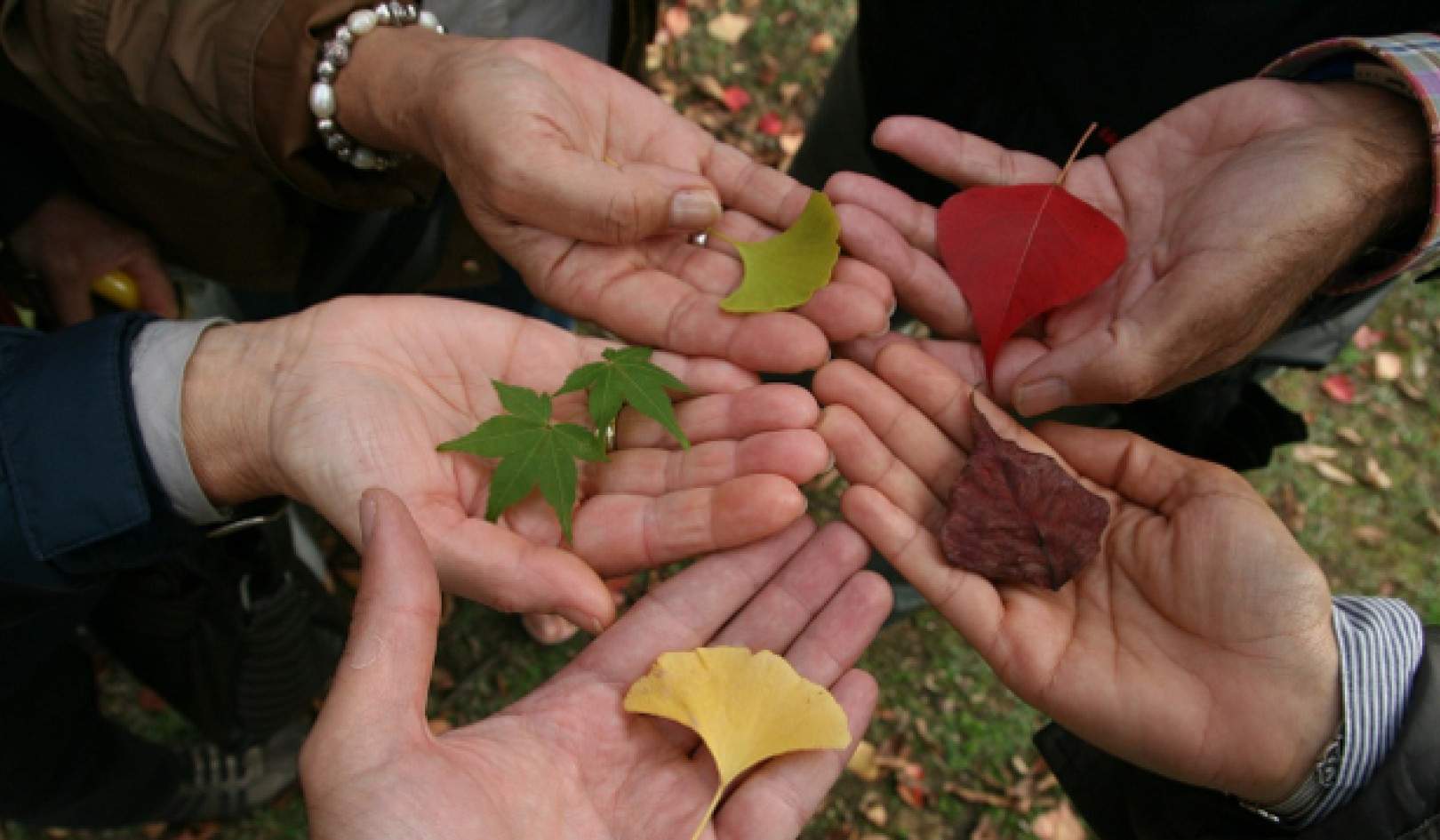
Image by Chloe Lemieux
It has been tremendously helpful for me to understand the difference between consciousness and spirituality. Spirituality is one type of energy — the energy that links us to our deepest essential nature and to the universal source. Consciousness is the awareness of all of the energies within us. Thus, it is quite possible to follow a spiritual path that is not necessarily a consciousness path. That is, we could work on developing the spiritual dimension of our being, without necessarily developing the other aspects.
We can become spiritually developed and totally identified with our "spiritual self". In this case, we would usually disown many other energies, especially the physical and emotional ones. That's why we see so many people who are very highly attuned spiritually, but may be completely out of balance in their physical and emotional lives.
Consciousness, on the other hand, involves developing and integrating all the many aspects of our being, including, but not limited to, the spiritual.
The Path of Transcendence and The Path of Transformation
The path of transcendence is a spiritual path, while the path of transformation is a consciousness path. Contacting and developing our spiritual nature is an important part of the consciousness journey, but there are many other important parts as well. The path of transformation involves a powerful commitment to every level of growth.
One of my concerns about the New Age movement is its focus on transcendence rather than transformation. Many are hoping that by developing spiritually, they can rise above their problems and not have to face the challenge of integrating their spiritual and human natures. They feel comfortable and safe exploring the spiritual and mental realms, but hope to avoid the more painful or difficult emotional healing work.
Of course, it is a perfectly legitimate option to choose a transcendent path, but it will not bring about profound healing and wholeness for the individual or for the world. And ironically, the peace of mind that so many people seek on the transcendent path cannot be fully achieved by focusing exclusively on that reality.
Difference Between Spiritual Essence & Human Personality
In New Age circles there is much talk about unconditional love. Many teachers urge their followers to practice forgiveness, be non-judgmental, and love fully without conditions, and many sincere seekers are earnestly trying to follow these teachings. I have a problem with the way these ideas are often presented. Of course, judgments are unpleasant, separating, and uncomfortable for all concerned.
Forgiveness is a powerful and healing force for both the giver and the recipient. And there's nothing more blissful than giving and/or receiving unconditional love. However, there is a lot of confusion and misunderstanding about these processes, and much of what is being taught is coming from the transcendent rather than the transformative approach.
Again, we must recognize the difference between our spiritual essence and human personality. As spiritual beings, we are always at one with universal love, which is always unconditional and non-judgmental. The personality, however, has the goal of learning to live in the physical world and get our emotional needs met. On the personality level, we are fundamentally concerned with protecting and caring for the vulnerable child within us; our feelings of love are entwined with our needs for safety, trust, and intimacy. We have powerful defense mechanisms in our personalities that can close off our feelings of love when we don't feel safe.
Do Not Deny or Suppress Feelings and Reactions
Rather than denying or trying to suppress these feelings and reactions, we need to respect and appreciate the function of our human personality. It is not by nature unconditionally loving. Much healing can take place when we recognize this as a given and are able to honor both our spiritual and our human nature.
When we feel judgmental, rather than denying those feelings, we need to look deeply into them to discover what is triggering them. Usually, we feel judgmental when we are frustrated because we have not followed our own truth in some way, or because we are having to confront another person who is reflecting one of our disowned selves back to us.
So, instead of simply blocking ourselves from experiencing our judgmental feelings, we need to be attentive to the fact that our judgments can provide us with clues for what we need to look at in ourselves; ultimately, they are healing gifts. If we try to suppress or ignore the feelings, we miss the opportunity for learning and consciousness. Condemning ourselves for being judgmental is simply judging ourselves for being judgmental!
Obtaining Knowledge in Order to Heal
What stops people from embarking on the transformational path? For many, it is simply a lack of knowledge. They aren't aware that such an opportunity exists, or perhaps they aren't sure how to go about finding it.
Lack of knowledge is not the only roadblock on the consciousness path. Another one is fear. We all fear the unknown, of course, and this particular journey certainly is unpredictable in many ways. That's why it is so important to cultivate a personal relationship with our inner guidance. Unless we feel some sense of a higher force working with us, it is simply too frightening to leave our familiar territory.
Moving Into Emotional Healing Work
Many people are afraid of emotional healing work. There are so many misunderstandings and stereotypes about psychotherapy. Unfortunately, there are also many less than adequate or downright harmful therapists and healers, and many people who have had negative, disappointing or downright traumatic experiences with them. So it is extremely important to choose your helpers wisely and carefully.
I have found that most people are afraid that if they begin exploring deep feelings, they will get stuck there and never emerge. When feelings have been repressed and disowned, they feel very intense and powerful, and it is easy to feel that they might overwhelm us forever if we ever give them the opportunity.
However, the facts are quite different. If we move into our healing process at our own pace, without pushing ourselves and with the right support, it is not nearly as difficult as we might fear. Each of us has an internal mechanism that guides the pace of our journey. Once we allow ourselves to experience an emotion freely, we discover that rather than washing us away, the wave of feeling gradually subsides and leaves us with a deep sense of wonderful peace.
Tap Into Spirit Rather Than Judgment
The key to unconditional love is found in the love our spirit has for our personality. When we can tap into spirit, we can unconditionally love ourselves — including the parts of us that are angry, judgmental, needy, and selfish. Then we naturally feel compassion and acceptance toward others as well. We recognize in them the same human attributes that we have learned to love in ourselves.
By loving and honoring our own personality in this way, we gain clear vision about other people's development on the personality level. We can maintain appropriate boundaries, making wise choices about who it's appropriate to get close to. At the same time, through our connection with our own divine essence, we naturally recognize and acknowledge the spiritual being in everyone else, even those with whom we know we must maintain some distance.
Remember that it doesn't really work to try to feel love, or any other feeling. Our feelings are not controlled by our will, and most attempts to assert this kind of power over them leads to denial, repression, and disowning parts of ourselves, or to an expression of feeling that is not authentic.
By acknowledging and honoring any feeling — no matter how "unacceptable" we might have previously judged it to be — we create space for its opposite. So trying to love unconditionally is a contradiction. Unconditional love is some thing that arises naturally when we can accept all our feelings and love all parts of us, including the parts that aren't unconditionally loving.
Published by Nataraj Publishing. ©1993.
New edition published by: New World Library,
Novato, CA, USA, 94949. www.newworldlibrary.com
Article Source:
The Path Of Transformation: How Healing Ourselves Can Change the World
by Shakti Gawain.
 Most people face challenging personal issues - in jobs, relationships, finances, and health. Traditional ways of living, working, and relating to one another and the environment often don't seem to work well, yet there are few effective models for change. Shakti Gawain shares the ideas and perspectives that have been the most helpful to her; guides readers in healing physical, mental, emotional, and spiritual wounds; provides tools for dealing with difficult situations; and proposes that the solutions to personal and planetary crises are within each human being.
Most people face challenging personal issues - in jobs, relationships, finances, and health. Traditional ways of living, working, and relating to one another and the environment often don't seem to work well, yet there are few effective models for change. Shakti Gawain shares the ideas and perspectives that have been the most helpful to her; guides readers in healing physical, mental, emotional, and spiritual wounds; provides tools for dealing with difficult situations; and proposes that the solutions to personal and planetary crises are within each human being.
Click here for more info and/or to order this book.
About The Author
 SHAKTI GAWAIN is an internationally renowned leader in the human potential movement. Her many bestselling books, including Creative Visualization, Living in the Light, The Path of Transformation, and Creating True Prosperity, have sold more than six million copies in thirty languages world. She leads workshops internationally and has facilitated thousands of individuals in developing greater balance and wholeness in their lives. For more info, visit her website at www.shaktigawain.com.
SHAKTI GAWAIN is an internationally renowned leader in the human potential movement. Her many bestselling books, including Creative Visualization, Living in the Light, The Path of Transformation, and Creating True Prosperity, have sold more than six million copies in thirty languages world. She leads workshops internationally and has facilitated thousands of individuals in developing greater balance and wholeness in their lives. For more info, visit her website at www.shaktigawain.com.



























